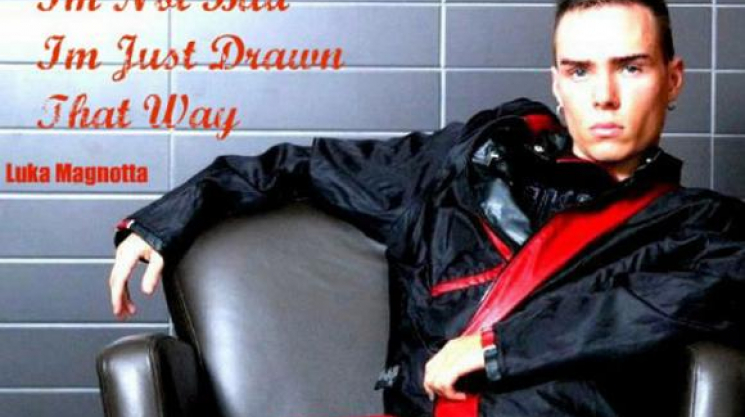
Tue, 06/12/2012 - 14:12 by Douglas Haddow
It’s been two weeks since the body parts turned up here in Ottawa, since Albert Street was lined for a block with emergency vehicles and Hazmat precautions all afternoon, through a monstrous early summer thunderstorm that cracked through that thick air that lingers in this valley. And now that the alleged sender, one Luka Rocco Magnotta, sits in a German jail and the search continues for his victim’s various other body parts, the precinct within which the Conservative Party headquarters is located – that is, The Hill – has returned to a kind of normalcy. Even some ham-fisted comments from the public safety minister about how his flawed lawful access internet legislation might have been able to play some role in Magnotta’s apprehension have been mostly shrugged off.
As they should have been, of course. This is not the stuff, after all, that necessarily bends to legislative prowess, no matter how much a politician would like it to retroactively do so. This is a hellish scene that had the Twitterverse gasping that, like, you guys, this was something that happened in Canada, our beloved, presumably genteel dominion. It was as if taken from a horror movie, and like any good scare flick, it was scariest for being only a degree or two removed from our own lives – the terrifying end point of our world of simulated self-reality.
Through Magnotta, we’ve now caught ourselves staring into the black abyss of a narcissistic culture writ large against a wall of blood tracing the flight path of an international fugitive – the man of many names and multiple personalities and all those blogs with the link from himself to the stardom he so desperately sought sitting right there in the URL, a dash away from some real celebrity, equalized in the democracy of the internet. There’s his name again and again next to that of another killer, Karla Homolka, inserted in a kind of twisted hero worship bid for fame by association – a Squeaky Fromme 2.0 for the 21st Century. There were those comments reportedly left on TMZ, telling the trolls that he was seen with this or that celebrity some night, and if you didn’t recognize the name then a simple Google search would turn up one of many single-post websites with a face shot and a screed about how haters gonna hate. We've watched the Magnotta audition tape for a show called ‘Plastic Makes Perfect’ with his cold monotone, already plastic and smooth, describing his own hair transplant and his wish for part of his forehead to be ground down like some other guy he saw on TV.
And finally, that grainy surveillance footage from Berlin, where he was picked up in an internet cafe, browsing his own porn photos and headlines about himself online. The fitting end to a story conceived in the backward mind of a pseudo-someone bent on scripting out the perfect storyline for the movie of the week, assembled in the recesses of his dark fantasies, so easily transferable to the pages of CSI or Law & Order or American Justice – the kind of seamless transition for a culture of incessant meme generation, slowly eating itself. Hide your kids, hide your wives.
This is the not-so-new territory of a child of the internet occupying a kind of Baudrillard-ian simulacrum nightmare – a system “never exchanged for the real, but exchanged for itself, in an uninterrupted circuit without reference or circumference.” A world within a world, just a cloud of whizzing, self-referential nothingness, enveloping a faint nucleus of pure narcissism; a reflected atom from the concentrated ray of social networks and comment threads and message boards that connects each one of us directly to the mainframe of a self-conscious world we occupy in order to curate those pages that advertise us as performers in the reality show of our lives. The more we hook in, the more the outside world becomes increasingly like the one Christopher Lasch described decades ago: that impenetrable reality of lost immediacy and harsh corners and complicated governments and economics and social relationships that all demands more of us than a clicked thumbs-up below a picture or political statement.
The new Narcissus, Lasch wrote all those years ago when he diagnosed society in the Age of Diminishing Expectations, gazes at his own reflection not in admiration, but in search of flaws. Even more so now, we stare at the selves reflected by the glowing screens and shape our personalities for the work of art that our lives have become. “All of us, actors and spectators alike, live surrounded by mirrors,” Lasch wrote. “In them, we seek reassurance of our capacity to captivate or impress others, anxiously searching out blemishes that might detract from the appearance we intend to project.”
This is Magnotta’s world, one of a projected existence separated from reality and one only barely removed from our own. His evil is not so much an intrusion into the calm of online life, but a symptom of the clouds brewing in the thick belly of our culture, somewhere between BestGore.com and YouTube, that fat middle bit of the internet where you can say whatever you like and be the person you always wanted to be or the one you think you should have been, for ever and ever, from the comfort of your bedroom, your boardroom, your basement, or your child’s bedside as they fall asleep to the tune of a mobile in the middle of the night. There is no him and us. There is only us, staring at simulations of ourselves, massaging our narcissism.





Add comment